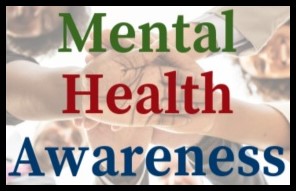 This discussion of bullying is part of our Mental Health Awareness series.
This discussion of bullying is part of our Mental Health Awareness series.
What's so bad about a little bullying? It's just harmless kid stuff, right?
Wrong.
People who have been bullied can experience pain and trauma that affects them for the rest of their lives, opens a new window.
What do we know about bullying? How do we know it when we see it?
Various organizations - state legislatures, opens a new window, school boards, opens a new window, and workplaces, opens a new window - have different ways of defining bullying. In general, bullies have more power than the people they target. Their power could be physical strength, social status, or some other advantage that the bullied person does not have. Some groups define bullying as a single aggressive act, while others describe it as a series of aggressive acts committed over time. Bullying, opens a new window isn't always overtly aggressive, though. Sometimes it involves more subtle behavior, like excluding someone from the rest of the group.
Even after you become an adult, you're not immune to bullying. Whether it's a stranger, an acquaintance, a family member, a classmate, or a coworker, opens a new window, wherever you go, when there are other people around, someone could target you for bullying. Other than avoid other people altogether - which isn't actually possible for most of us - what can we do?
-
What can we do to prevent bullying?
Be kind, opens a new window to one another. Demonstrate empathy, opens a new window. This is easy to say, but sometimes hard to do.
Early intervention is ideal. Parents can model kind behavior. Parents can also talk with their children, opens a new window to help boost their self-esteem.
Teachers and school administrators, opens a new window can listen when a student tries to talk to them about a bullying problem, opens a new window and do something about the problem. -
What can we do when we see someone bullying another person?
We can "stand up for someone by saying that's not okay, opens a new window." Students, opens a new window can start peer support groups. Witnesses, or bystanders, can intervene, opens a new window and become "upstanders, opens a new window." - What can we do when we become the target of bullies, opens a new window?
You're not alone and it's not your fault, opens a new window. Talk to someone you can trust, someone your age, like a friend, opens a new window or an adult, like a counselor, opens a new window. Don't hate yourself; that only makes things worse. - What can we do when the bullying has stopped but we still feel bad, opens a new window?
Talk about it. Tell your story, opens a new window. Look for ways to help others. Develop self-compassion, opens a new window and self-care.
This brief discussion about bullying wouldn't be complete without considering bullies and why they bully, opens a new window. In some instances bullies themselves are targets of abuse. It's understandably difficult to be empathetic to someone who has bullied you, but sometimes understanding and forgiveness allows you to move on with your life.
If you or someone you know is being bullied, or if you realize that you have bullied others and you need to stop it, help is available. Talk with a teacher, a doctor or a counselor about the bullying, or contact any of the following organizations:
- NAMI St. Tammany offers many resources and programs here on the Northshore.
- Louisiana 2-1-1, also known as Vialink, is available 24/7. Dial 211 on your phone, and speak to someone who specializes in crisis intervention, information, and referral.
- The National Suicide Prevention Lifeline, 1-800-273-8255, en español 1-888-628-9454, is available 24/7. National Suicide Prevention's TTY number is 1-800-799-4889. They also have an online chat service.
- The Crisis Text Line is available 24/7. Text TALK to 741741. After you send this first text message, you will receive an automated text asking about your crisis. Based on your reply, the Crisis Text Line team pairs you with a counselor, who will then text you directly.
- The NAMI HelpLine, 1-800-950-6264, is available Monday - Friday, 9 AM - 5 PM CST. You can also email info@nami.org, opens a new window.
- IMAlive uses a chat service to respond to people in crisis. Click the "Chat Now" button to begin speaking with a trained volunteer.
If you or someone you know needs immediate or emergency help, please call 911.
This discussion of bullying is for informational purposes only and is not intended as a replacement for healthcare or counseling.
We have compiled a list of St. Tammany Parish Library resources and external websites that have more information about surviving and preventing bullying. Please contact your nearest St. Tammany Parish Library reference librarian, opens a new window if you need help getting any of the items on this list:



Add a comment to: Bullying: Survival and Prevention